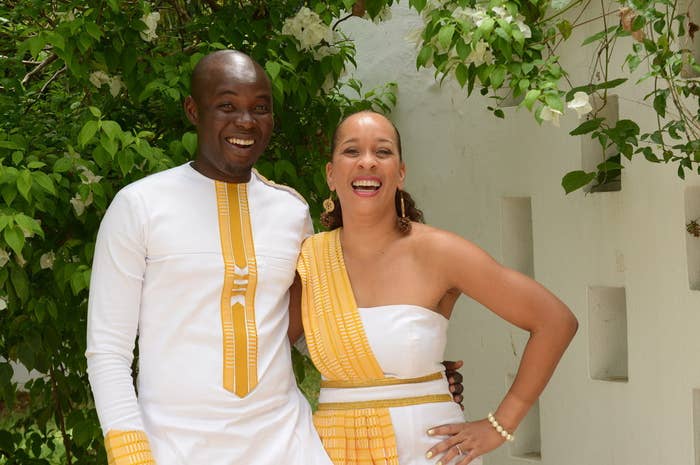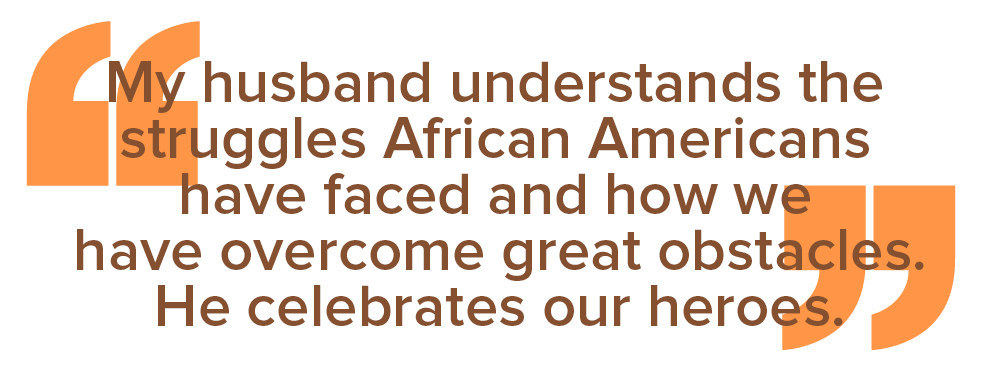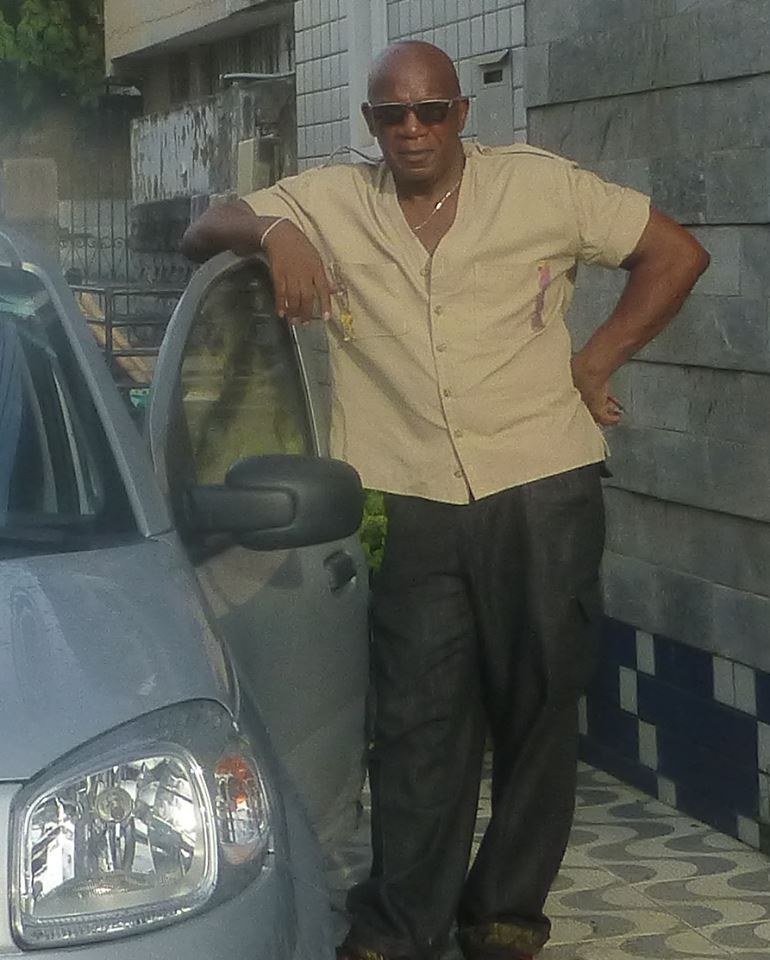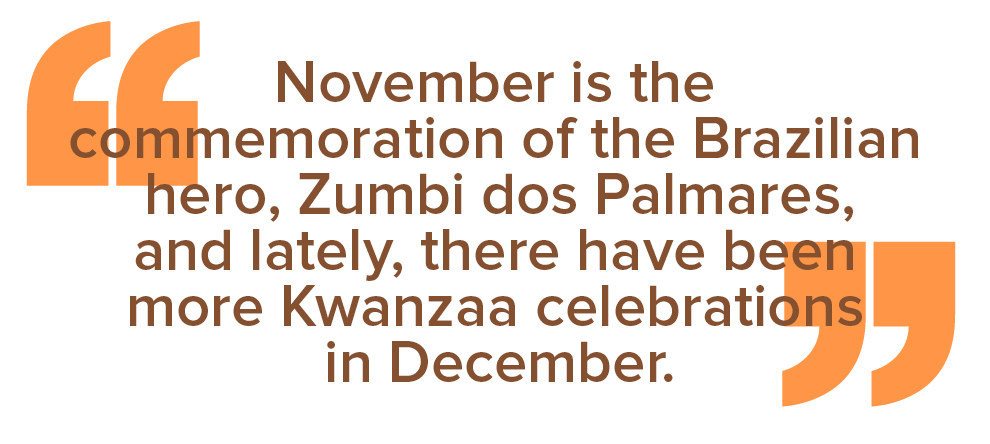The black American history of emigrating is rich and extensive. From Jamaican-born black nationalist Marcus Garvey's Back to Africa movement in the early 20th century to the trips taken by long-revered black artists and thinkers Josephine Baker and W.E.B. DuBois, these departures have typically been prompted by a desire to escape racial inequality and, in some cases, reconnect to ancestral roots.
A century later, they continue to expatriate, both to countries that have historically received Americans, like Ghana, and to others with large black native populations, such as Brazil.
BuzzFeed News spoke via email to three black Americans currently living in Accra, Ghana; Salvador da Bahia, Brazil; and Paris, France, about what prompted them to move and how they recognize Black History Month as Americans abroad. Their responses have been edited for length and clarity.

Name: Christa Sanders
Profession: Director of an American university
Where did you grow up? Philadelphia, Pennsylvania
Where do you live now, and when did you move there? I reside in Accra, and I moved here in August 2004.
Why did you move there? I moved to Ghana because of an extraordinary career opportunity to help develop a study abroad program for a prestigious American university. I had also traveled to Ghana in 1999 with my family, and felt a deep spiritual connection to the country, its people, and culture. I had always dreamt of an opportunity to return. When the opportunity finally presented itself to work in Ghana, I couldn't refuse!
Do you have any memories, positive or negative, of celebrating Black History Month in the U.S.? I have positive memories of celebrating Black history in the U.S. Most of these memories go back as far as my childhood where I can recall having to do presentations in both school and church on different figures in black history that I admired. I can recall being especially drawn to figures such as George Washington Carver, Charles Drew, Dorothy Dandridge and Martin Luther King Jr. I remember feeling great pride as a child in these figures, and in being African American.

Do you recognize Black History Month where you live now? If so, how? If not, why not? I certainly recognize Black history but living in an African country it is obviously not celebrated in the same way as in the U.S., however through associations such as the African American Association of Ghana and the United States Embassy who have annual programs, black history is celebrated and kept alive. For example, here in Accra this year, I attended a production of "A Raisin in the Sun," a spoken word performance, and an art exhibition.
Have you ever had a conversation with someone native to the country you've moved to about Black History Month? My husband is from Ghana, and we often talk about Black History Month. He has been supportive in attending events with me, and understands and appreciates the struggles African Americans have faced and how we have overcome great obstacles. He appreciates and celebrates our heroes. He is particularly inspired by Rosa Parks.

Name: Adrian Erik McCray
Profession: Writer, organizer
Where did you grow up? I was born in Georgetown, South Carolina, but spent decades in Philadelphia.
Where do you live, and when did you move there? I originally came to Salvador at the invitation of a friend in Philly who taught here in 2003 or 2004, I really don't remember. We participated in the same poetry group in Philly, and he organized a trip for the group during Carnaval.
Why did you move there? I actually hated Carnaval because the poor black, rich white division was too apparent. I was interested in knowing more about Bahia, and some black Brazilians invited me to visit after Carnaval where they said I would discover the reality of the people.
I had already been planning to change jobs and decided to take a year sabbatical when I invited by two community groups, A Mulherada and Centro das Artes a Cultura, to participate. The projects continued to grow, so I decided to become an engineering consultant in the U.S. so that I could work at will and continue the projects in Bahia.

Do you recognize Black History Month where you live now? If so, how? If not, why not? Since February is the month of the busy Carnaval season, there is no Black History Month celebration in February in Bahia. But sometimes I meet visitors from the U.S., and they want to visit the Afro-Brazilian Museum or learn more about Afro-Brazilian history.
November and December are the closest equivalent to a Black History Month celebration in Bahia. November is the commemoration of the Brazilian hero, Zumbi dos Palmares, and lately, there has been an increasing number of Kwanzaa celebrations in December. I usually am asked to speak at one or more Kwanzaa celebrations.
Have you ever had a conversation with someone native to the country you've moved to about Black History Month? I discuss Black History Month often with friends, especially since the Internet allows us to exchange images of Black History Month celebrations from the U.S.
That has led to a type of unofficial celebration of Black History Month as these friends begin to locate or receive these images and they share them on the social media, often asking questions about them.
For example, some Brazilians are surprised to see so many black American churches hosting Black History Month commemorations, because the church with many black members in Brazil do not play as progressive a role, in general, in growing the black consciousness movement.

Name: Shola Adisa-Farrar
Profession: Singer, actress
Where did you grow up? Oakland, California
Where do you live now, and when did you move there? I currently live in Paris, where I have lived for five years. I moved here the day before my 26th birthday.
Why did you move there? Before Paris, I lived in New York for eight years —where I went to college — and was feeling burnt out at the time. I hadn't studied abroad, so I figured before I got "settled" (married, with kids and real financial obligations) this was the time to explore and have a new life experience. Plus, I wanted to feel challenged and find more conviction in my purpose. There was also a little love affair, which helped me make the big leap.
Do you have any memories (positive or negative) of celebrating Black History Month in the U.S.? I come from an Afro-centric, pro-black household. Both of my parents are artists and professors, so black history in our home was not reserved to one month. My mom is Jamaican, so knowing key figures throughout the Caribbean and the entire African diaspora was important in our household.
In school, I remember Black History Month basically only covering the usual suspects: Harriet Tubman, Martin Luther King, and Rosa Parks, and everyone would recite Maya Angelou's Still I Rise. It always felt like a chore, not an opportunity. However, in elementary school every February I participated in the Martin Luther King Jr. Oratorical Fest. My mom is a poet, and normally wrote my poems with me or for me, and every year my classmate and I represented our school in the city-wide competition.

Do you recognize Black History Month where you live now? If so, how? If not, why not? Black History month is not formally celebrated in France, and I don't go out of my way to do something special to celebrate or recognize the achievements of blacks in February. In addition to my profession, for the majority of my time in Paris I have worked as a tour guide for a company that specializes in the history of jazz and African Americans in Paris, so our history is one that is constantly on my mind. It's one that I share and literally carry around with me.
Have you ever had a conversation with someone native to the country you've moved to about Black History Month? I have had conversations with a few French people about Black History Month and some of the conversations around it, like: Why are Black Americans differentiated from other Americans, isn't this American history? Why is it commemorated on the shortest month of the year? Why February? What's the big deal?
It's a very interesting position being a black American in France because I'm treated first and foremost as an American (which is, for the most part, favorable here), and my blackness seems to play as secondary, whereas in America, my blackness tells a story before I am even able to speak.
